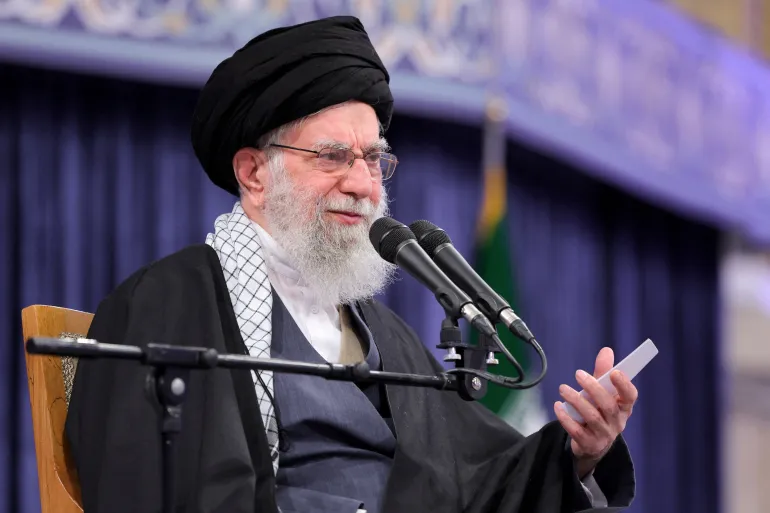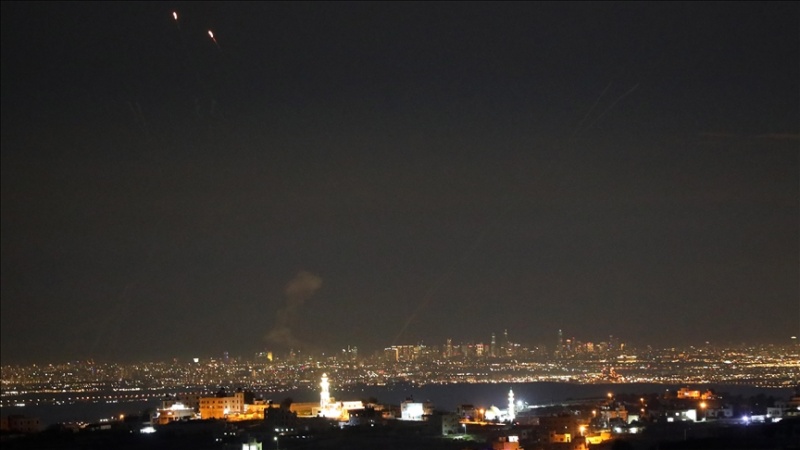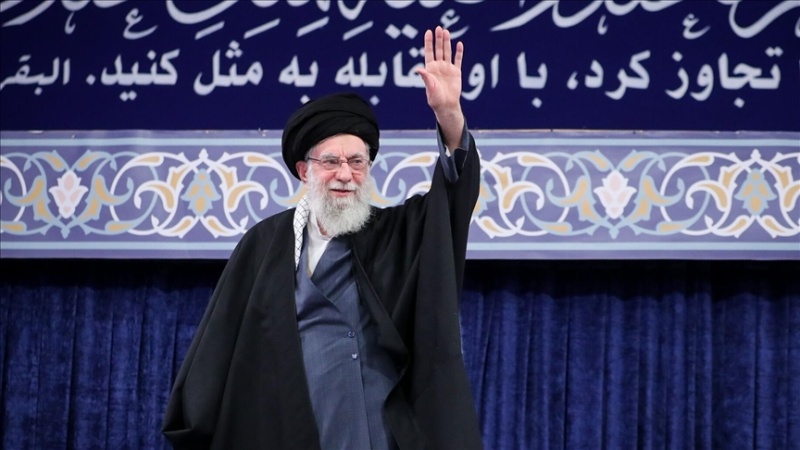



Loading banners


NEWS EXPRESS is Nigeria’s leading online newspaper. Published by Africa’s international award-winning journalist, Mr. Isaac Umunna, NEWS EXPRESS is Nigeria’s first truly professional online daily newspaper. It is published from Lagos, Nigeria’s economic and media hub, and has a provision for occasional special print editions. Thanks to our vast network of sources and dedicated team of professional journalists and contributors spread across Nigeria and overseas, NEWS EXPRESS has become synonymous with newsbreaks and exclusive stories from around the world.

How might we explain or understand the situation whereby the president of Nigeria in the year 2016 tells a global television channel that there is nothing wrong with going against the IMF if it is against Nigeria’s national interest but did not return home to an ovation rapturous enough to be heard there at the IMF Headquarters in Washington, the AU Headquarters in Addis, the Great Hall of the People in Beijing, the Parliament Building in Pretoria and the head offices of the supposedly anti-SAP civil society organisations in Nigeria? Could it be that the Nigerian society has become too ideologically dead or the government has become so dangerously alienated that such an iconic statement rouses no one? I wouldn’t say I have had the time to follow the Nigerian media as systematically as was the routine as for me to be so sure that the statement did not rouse. But even while lost in some authorial engagement, a process which has taken its toll on one’s engagement with the media, I could perceive a rather lukewarm national attitude to that aspect of the Buhari interview with Aljazeera recently. It is not only the lukewarm attitude but the disturbing deadness it suggests about contemporary Nigeria, less than a year after pushing Jonathan out of power.
Anyone who wonders why anyone is surprised that the statement in question is not accorded the status of a Second Independence Proclamation probably needs a reminder. Until recently, the IMF and the World Bank were the two most key instruments used to sustain disciplinary neoliberalism. Disciplinary neoliberalism is the structural cum institutional arrangement that keep states outside the ‘liberal world order’ under surveillance and control in terms of how well they kept to the tenets of neoliberal globalisation. Neoliberal globalisation is the destructive way of governing a non-industrial society. So, it is resisted by most governments. But the patrons insist the world must run along that line. And it is with the IMF and the World Bank they compel all else to follow or suffer for it.
Since the late 1970s when neoliberalism asserted itself as the ideology of the global order, everything about politics in Nigeria has assumed the chaos inherent in that doctrine of power which people mistake as an economic philosophy. Speculation and anarchy have enveloped the country, from the economy to politics and to even religion. Similarly, the struggle for and against SAP has decided the fate of every regimes since then.
Our generation suffered the most. Student activists who led the struggle against it were mercilessly expelled, suspended, jailed or destroyed. Many students were shot dead in the series of street actions against SAP, the corner stone of disciplinary neoliberalism. The entire struggle of the students, gender, civil society, academics, labour and professional associations since the 1980s was all about it and everyone came out with scars. Today, the Nigerian society itself is the best evidence of how neoliberal globalisation can destroy a society, undermine cohesion, aggravate differences, put the society on the line of collective disaster. In fact, neoliberal globalisation makes collective existence impossible. And we see this in how everyone has become a chauvinist, leaving the national idea vulnerable to politically divisive agitations.
In a 2005 assessment, a Nigerian political scientist drew an instructive conclusion about SAP that the view that Africa stood to gain a lot by having access to western stocks and capital had proved misplaced because Africa had not only failed to attract much Foreign Direct Investment, (FDIs), it had actually thrown away the limited gains that protectionist policies enabled it to achieve at all in the years before SAP. Yet, these countries are forced to pursue the illusion of strategic entry into Western markets in the form of African Growth and Opportunity Act as well as the Economic Partnership Agreement even when SAP is such that many of them are either coming out of war or about to enter crisis of such magnitude. So, when the president says, why can’t we go against the IMF if it is against our national interest, he seemed to be aware it is the equivalent of an independence declaration. This is why there must be rethinking, both on his own side and in the larger society, if the country is not clapping at a ‘declaration of independence’.
The last person who came closest to making a similar declaration was Obasanjo when IBB regime insisted the IMF way had no alternative to it. Then, Obasanjo said there must be SAP with human face. That was partly the basis for the great expectations in 1999 before Baba Iyabo turned up to handover the management of the economy to even more mindless but poorly oriented neoliberals. It was a tragedy because it meant that Nigeria lost the advantage of Obasanjo’s locatedness in the Western elite circles that enables him to say his mind as bluntly as it can ever be said without any reprisals. Even if Obasanjo had pointedly told the powers: give Nigeria a breathing space. We want to industrialise”, the heavens would not have fallen. If he was anybody’s stooge at all, he was the independent minded type. But he too turned out to be a superintendent of a privatisation exercise although he did not lose his own individual sensitivity to its dangers. This is one’s interpretation of his conscious refusal to allow the exercise to extend to certain SOEs till he left government.
Against this background, I have no idea why there have been no handclapping for the regime generally and specifically. Could that have to do with the pressure on the politicians, particularly those now on trial for alleged corrupt practices? That’s doubtful. Could we be dealing with the contradictions of a statist implementing lots of neoliberal packages that are pitching it against labour already, particularly on outrageous charges imposed on a hapless citizenry by the electricity concerns? Or is this anger against a ‘change’ regime that is yet to mention anything fundamental about rapid, endogenous industrialisation? Or could it have to do with the president not being a politician in the sense of histrionics and an observable inability or disinclination to construct hegemony in the larger society?
As a person, he doesn’t have to bother about any or all of these but as a Nigerian president capable of making that statement and, given that ‘saying is doing’, some of us are interested in him moving in a certain way. Professor Akin Mabogunje was correct in 1998 to say that Nigeria was still emerging from the stranglehold of the local, regional and other structures of ownership of the individual, that process has run on a very fast lane to virtual completion across the country and managing power in Nigeria now demands minding the post modern sensibilities they embody.
One is not ignorant that there are no more the powerful, alternative discourses in the larger society comparable to the eighties that would have made it impossible for the regime or leadership to be less mindful of certain sensibilities. It is doubtful that the Cyberethnic orientation of the social media as far as many Nigerian users are concerned provides the counter to Buhari’s natural infatuation with the state building strategies their generation learnt in military academies during the heydays of modernisation theory. Whether Buhari is right and the people are wrong or whether it is a mark of popular disenchantment with the regime, there can be no comfort in observing another era of deep chasm between the government of the day and the populace. As student activists, it was our pleasure seeing any particular government lose popular support as evidence of the correctness of our own tendency position and how wrong that of the particular government must have been. Of course, we were right but we have also seen what a weak state could translate to across the world, particularly in Africa. Nigeria should not find itself in this relapse to combustible state of siege and tension between the government and the larger society. That is not an option in the age in which the state is so contested, academically and practically.
A statist is the next most impossible thing to get anywhere in the world today, although statists are the ones achieving unbelievable developmental breakthrough for their countries. So, what might be happening that statism in Nigeria isn’t striking the chord? Is this the case of a society that cannot appreciate statism or is this a badly behaved statist? Could we be clapping at our own humiliation by not reckoning with the moment of liberation or could the government have so crossed the Rubicon of antagonising popular sentiments by believing too much in its own righteousness that the society is no longer keen to put in context even such a statement as Buhari had made?
•Adagbo Onojoa, whose photo appears alongside this piece, is an Abuja-based journalist and commentator on public affairs.